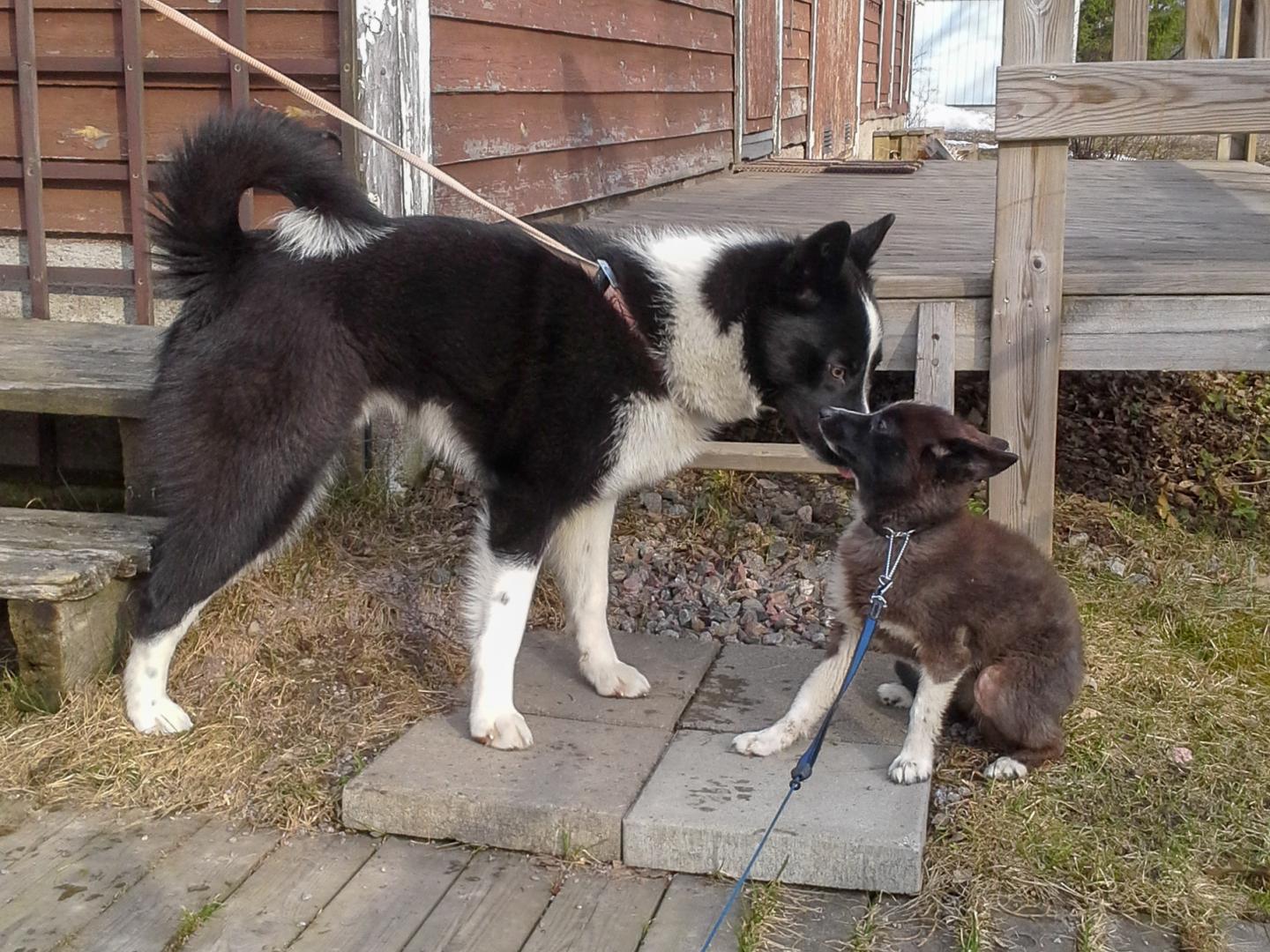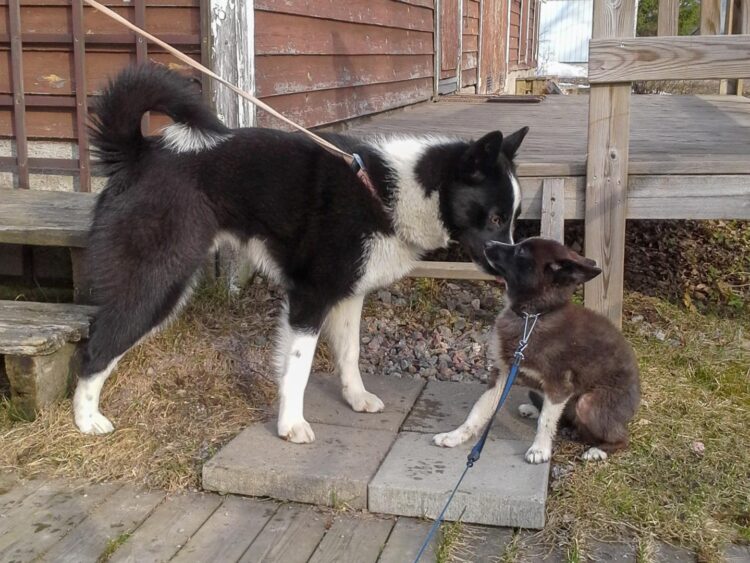
Credit: Noora Kaikkonen
The pituitary gland is a pea-sized endocrine gland composed of two structurally and functionally separate parts known as anterior and posterior lobes. The pituitary gland’s anterior lobe secretes six hormones essential to growth, reproduction, and other basic physiological functions. Abnormal development of the pituitary gland, or hypopituitarism, can cause mild or complete deficiency of one or more pituitary hormones, which manifests as highly varying symptoms. Tumours mainly cause hypopituitarism in humans, but a congenital factor can also be associated with the disorder.
The POU1F1 gene regulates the development of the anterior pituitary lobe, and disruption to its function results in hormonal changes, evidenced in affected dogs as dwarfism and coat abnormalities. A gene test developed based on the findings supports diagnostics and a breeding programme to eradicate the disease from the breed.
“Roughly 30 genes have been associated with inherited hypopituitarism in humans, many of which are regulator genes, which affect the development of the pituitary gland. In addition to humans, impaired pituitary function occurs in mice and dogs. In German Shepherds, hypopituitarism has previously been associated with the LHX3 gene, while in the case of Karelian Bear Dogs, the disease was described in Denmark already 45 years ago. Now, we have identified a related cause in the POU1F1 gene. This is only the second new canine model for human pituitary disease, making it quite significant,” says Professor Hannes Lohi.
Samples for the study were collected from Finnish and Swedish symptomatic and asymptomatic Karelian Bear Dogs.
“We managed to get samples from a total of eight sick puppies from five different litters. The puppies were as much as 20 centimetres smaller than normal, with many of them also having a puppy-like coat or substantial hair loss. Typical of the disease, their symptoms were varied. A handful of carriers of the POU1F1 variant were also found in Lapponian Herders in an analysis encompassing more than 8,000 dogs,” says Kaisa Kyöstilä, PhD, the first author of the article.
The study confirmed that the disease is inherited recessively, meaning that the affected dogs inherit the gene variant from both parents. Among Karelian Bear Dogs, only 8% of the breed carries the defect, and carriers do not develop the disease. The gene test based on the research finding can be used to identify carriers, avoid carrier-carrier combinations in breeding and eradicate this severe disease from the breed altogether.
The latest POU1F1 gene discovery is already the third disease gene described in Karelian Bear Dogs. The research group has previously described gene finds associated with dwarfism (link in Finnish only) and hypophosphatasia.
###
The study is part of Professor Hannes Lohi’s gene research programme at the Faculties of Veterinary Medicine and Medicine, University of Helsinki, and the Folkhälsan Research Center. This study was partially supported by the Canine Health Research Fund, the Jane and Aatos Erkko Foundation, the Academy of Finland, HiLIFE – the Helsinki Institute of Life Science and Wisdom Health.
Media Contact
Hannes Lohi
[email protected]
Original Source
https:/
Related Journal Article
http://dx.





